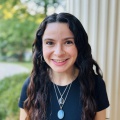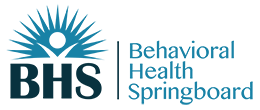
Date & Times:
Thursday, May 2, 2024: 8 am – 4:30pm
Friday, May 3, 2024: 8:30 am – 1:45 pm
Location: Koury Convention Center, Greensboro, NC
3121 W Gate City Blvd, Greensboro, NC 27407
Capacity: 150 Max
Contact hours: 9.5
The Reach One Teach One Youth MHFA Summit will provide an opportunity to bring youth and teen MHFA instructors from across N.C. together to learn, grow and network with other local and national MHFA champions, content experts and practitioners. Participants will receive specialized consultation and technical assistance from nationally recognized Youth and teen MHFA trainers, learn how youth and teen MHFA programs support school and community based resilience and well-being initiatives, and engage in focus groups that will support long term program sustainability.
The summit will occur over 2 days and will be fully in-person at the Koury Convention Center. There will be a plenary session to open the summit for all attendees. The summit will include a total of 4 breakout sessions with 3 session options for each breakout. For a total of 12 breakout session options for attendees to choose from. The summit will conclude with a closing plenary session for all attendees.
Target Audience:
-Individuals who are currently certified as an YMHFA or tMHFA instructor.
-Individuals interested in becoming a certified instructor (requires commitment to a 3-day training).
Registration: Pre-registration is required to attend.
The registration fee for the retreat is $100.
Registration fee includes:
Training materials
9.5 contact hours
2-night hotel stay
2-day breakfast & lunch
Refund Policy: Registration is non-refundable.
The summit will occur over 2 days and will be fully in-person at the Koury Convention Center. There will be a plenary session to open the summit for all attendees. The summit will include a total of 5 breakout sessions with 3 session options for each breakout. For a total of 15 breakout session options for attendees to choose from. The summit will conclude with a closing plenary session for all attendees.
Registration fee: $100 per person (non-refundable)
Registration fee includes:
- Training materials
- 9.5 contact hours
- 2-night hotel stay*
- 2-day breakfast & lunch
Refund Policy: Registration is non-refundable.
*Please Note: Your hotel accommodations will be taken care of by BHS, you will not need to confirm this yourself. Check-in is on May 1st with a check-out date of May 3rd.
| Restorative Justice, tMHFA, and YMHFA: The Intersections and Connections | Soumya Palreddy, Ian Lowe |
| Empowerment through Facilitation: Creating Safe and Culturally Inclusive Learning Spaces | Suzanne Pearlman |
|
Trauma-Informed Leadership Teams: A Model for Helping Schools Respond Effectively to Stress and Trauma ---- Supporting the Well-being of Youth and Teen MHFA Instructors |
Felicia Gibson |
| Social Emotional Learning in NC Schools: Where are we and where are we going? | Gianna Seminara |
| What Lessons have we Learned? Using Data to Inform YMHFA Program Sustainability (Focus Group | Sarah Reives |
| Working Smarter, Not Harder: Creating Overlap in Sustainable Work | Amaris Sampson, Cherice Artis, Gradesa Lockhart |
| Change – It Can be Your Friend! | Dr. Corliss Thompson- Drew, Tanyetta Sutton |
| Understanding NC School Behavioral Health Systems | Nina Muller |
Thursday, May 2nd Agenda:
| 8-9:00am | Registration/Breakfast |
| 9-10:30 am | Opening Plenary |
| 10:45-12:15pm | Breakout Session 1 |
| 12:15-1:15pm | Lunch |
| 1:55-2:45 pm | Breakout Session 2 |
| 2:45-3pm | Networking Break |
| 3-4:30pm | Breakout Session 3 |
Friday, May 3rd Agenda:
| 8:30-9 am | Breakfast |
| 9-10:30 am | Breakout Session 4 |
| 10:30- 10:45 am | Break |
| 10:45 am-12:45 pm | Closing Plenary Panel |
| 12:45pm-1:45pm | Lunch |
Sponsorship Statement: The conference is being hosted by UNC School of School Work Behavioral Health Springboard and is being funded by the NC Division of Child and Family Well-being through funding provided by the Governor's Office to implement Youth Mental Health First Aid (YMHFA) and teen Mental Health First Aid for NC schools and other youth-serving community organizations.
Inclement Weather Policy:
Any announcements regarding changes to the schedule due to inclement weather will be posted on https://bhs.unc.edu. Registered participants will also be notified by email.
ADA Statement:
If you require any of the auxiliary aids or services identified in the Americans with Disabilities Act in order to participate in this program, please email us at bhs-support@unc.edu once your registration is complete so we have enough time to make accommodations.
Contact for Questions: bhs-support@unc.edu
Continuing Education:
The Reach One Teach One: NC YMHFA Instructor’s Summit will provide a Only a certificate of completion with 9.5 contact hours listed.
Breakout session 1 options
Option 1: Restorative Justice, tMHFA, and YMHFA: The Intersections and Connections
Speaker: Soumya Palreddy, PhD and Ian Lowe, MA (Pal Reddy-Lowe)
Training Description:
This session will focus on how restorative practices can amplify Youth Mental Health First Aid and teen Mental Health First Aid implementation to create sustainable and deep change in school communities.
Learning Objectives:
1.Identify the restorative justice in education framework.
2.Identify different types of restorative practices that are utilized in schools.
3.Explore how restorative practices can support staff and student wellbeing.
4.Explore how restorative practices can support tMHFA and YMHFA implementation.
Option 2: Empowerment Through Facilitation: Creating Safe and Culturally Inclusive Learning Spaces
Speaker: Suzanne Pearlman, MA (De Pearl & Assoc)
Training Description: In this interactive session, attendees will gain a deeper understanding of how cultural experiences and trauma histories can shape individual experiences and group dynamics within the YMHFA and tMHFA classroom.
Learning Objectives:
1.Explore practical strategies for effectively facilitating YMHFA while prioritizing the safety and engagement of culturally diverse learners. Emphasis will be placed on acknowledging and addressing histories of harm, and fostering an inclusive and supportive learning environment.
2.Develop skills to effectively respond to emotional distress and prioritize psychological safety within the learning environment.
3.Develop a comprehensive toolbox tailored for facilitating audiences from diverse experiences and communities. This toolbox will include considerations for respecting and honoring community cultures, as well as protocols for engaging when we are not of-community.
Option 3: Trauma-Informed Leadership Teams: A Model for Helping Schools Respond Effectively to Stress and Trauma
Speaker: Felicia Gibson
Training Description: Participants will define how toxic stress can impact both students and staff well-being. Participants will be introduced to the concept of “trauma-informed leadership teams” and how it positively impacts levels of stress.
Learning Objectives:
1.Explore a brief intro to trauma and stress
2.Discuss how trauma and stress impacts learning and behavior
3.Discuss Trauma-Informed Leadership Teams (TILT) and our approach to trauma-informed practices in schools
Breakout session 2 options
Option 1: Social Emotional Learning in NC Schools: Where are we and where are we going?
Speaker: Gianna Seminara
Training Description: Participants will be introduced to Social Emotional Learning and its impact on North Carolina students and school staff.
Learning Objectives:
- Describe what Social Emotional Learning looks like in schools and the need for SEL in North Carolina Schools.
- Examine how NC Schools are responding to the social and emotional needs of their students and staff, including the resources available, needs, and barriers to programming.
Option 2: What Lessons have We Learned? – Using Data to Inform YMHFA Program Sustainability (focus group)
Speaker: Sarah Reives-Houston
Training Description: Effective youth and teen MHFA program sustainability will require an in-depth assessment of the successes, challenges and opportunities experienced by participating stakeholders. This session will provide an opportunity for youth and teen MHFA instructors to support the collection of implementation and impact data that will be used to inform the initiative's sustainability plan.
Learning Objectives:
1.Discuss the Youth and Teen MHFA Initiative’s successes, challenges, barriers and opportunities
2.Provide opportunities to explore resolutions to implementation barriers that promote program sustainability.
Option 3: Working Smarter, Not Harder: Creating Overlap in Sustainable Work
Speaker: Amaris Sampson
Training Description: Participants will gain an understanding of how DPS approached this initiative while offering insight on how to create sustainable practices when working with district administrators on bringing Teen MHFA to their school.
Learning Objectives:
1.Describe how Teen MHFA supports restorative practices, culture frameworks, and trauma informed practices within schools.
2.Discuss special considerations for Teen MHFA implementation for district level and school-based administrators.
Breakout session 3 options
Option 1: What Lessons have We Learned? – Using Data to Inform YMHFA Program Sustainability (focus group)
Speaker: Sarah Reives-Houston
Training Description: Effective youth and teen MHFA program sustainability will require an in-depth assessment of the successes, challenges and opportunities experienced by participating stakeholders. This session will provide an opportunity for youth and teen MHFA instructors to support the collection of implementation and impact data that will be used to inform the initiative's sustainability plan.
Learning Objectives:
1.Discuss the Youth and Teen MHFA Initiative’s successes, challenges, barriers and opportunities
2.Provide opportunities to explore resolutions to implementation barriers that promote program sustainability.
Option 2: Understanding NC School Behavioral Health Systems
Speaker: Nina Miller
Training Description: Implementation of the NC School Behavioral Health Action plan requires a unique collaboration between several different arms of NC's behavioral health and public education systems. This session will provide a high-level overview of the various initiatives concerning SBH services and programs that are currently being implemented by NC's governing systems.
Learning Objectives:
1.Discuss statewide school behavioral health initiatives
2.Explore opportunities for YMHFA instructors to support these efforts in their local school communities.
Option 3: Supporting the Well-being of Youth and Teen MHFA Instructors
Speaker: Felicia Gibson
Training Description: This session will discuss the stressors experienced by youth and teen mental health first aid instructors while providing high quality interaction with youth and teen training participants. Session attendees will engage in group discussion about empathic strain and explore strategies that support resilience and wellbeing for instructors as well as their training participants.
Learning Objectives:
1.Discuss the prevalence of secondary traumatic stress, compassion fatigue and burnout for members of the helping profession.
2.Explore self-care strategies that reduce the impact of burnout and promote high-quality engagement for YMHFA and Teen MHFA Instructors
Breakout session 4 options
Option 1:Restorative Justice, tMHFA, and YMHFA: The Intersections and Connections
Speaker: Soumya Palreddy, PhD and Ian Lowe (Pal Reddy-Lowe)
Training Description: This session will focus on how restorative practices can amplify Youth Mental Health First Aid and teen Mental Health First Aid implementation to create sustainable and deep change in school communities.
Learning Objectives:
1.Identify the restorative justice in education framework.
2.Identify different types of restorative practices that are utilized in schools.
3.Explore how restorative practices can support staff and student wellbeing.
4.Explore how restorative practices can support tMHFA and YMHFA implementation.
Option 2: Empowerment Through Facilitation: Creating Safe and Culturally Inclusive Learning Spaces
Speaker: Suzanne Pearlman, MA (De Pearl & Assoc)
Training Description: In this interactive session, attendees will gain a deeper understanding of how cultural experiences and trauma histories can shape individual experiences and group dynamics within the YMHFA and tMHFA classroom.
Learning Objectives:
1.Explore practical strategies for effectively facilitating YMHFA while prioritizing the safety and engagement of culturally diverse learners. Emphasis will be placed on acknowledging and addressing histories of harm, and fostering an inclusive and supportive learning environment.
2.Develop skills to effectively respond to emotional distress and prioritize psychological safety within the learning environment.
3.Develop a comprehensive toolbox tailored for facilitating audiences from diverse experiences and communities. This toolbox will include considerations for respecting and honoring community cultures, as well as protocols for engaging when we are not of-community.
Option 3: Change- It Can Be Your Friend!
Speaker: Dr. Corliss Thompson-Drew
Training Description: This session will provide participants with an overview of one district's prioritization of behavioral health in its strategic plan. This session will explore the district's journey to implementation, including alignment of its rationale to strategic aims and goals and state mandates. Participants will see how collaboration, communication, and action planning were used as foundation for implementation.
Learning Objectives:
1.Discuss how to leverage systems change for engagement and implementation.
2.Explore an action plan, protocols, and tools for implementation.
 Dr. Sarah Reives-Houston
Dr. Sarah Reives-Houston
Sarah Reives-Houston, Ph.D., PsyD (ABD) is the Director of Behavioral Health Springboard at the UNC School of Social Work. She has a Ph.D. in education psychology from Capella University and is completing her PsyD in clinical psychology and trauma from California Southern University. Dr. Reives-Houston is certified as a family trauma specialist and as a child and adolescent trauma specialist and engages in research and conducts training on recognizing, managing, and mitigating the impacts of trauma on client populations and service providers. Prior to coming to UNC, she was on the faculty at NC Central University, where she taught courses and oversaw research projects and evaluation programs. She has also developed training and curriculum materials on mental health, substance abuse, systems of care for individuals and families.
 Soumya Palreddy, PhD
Soumya Palreddy, PhD
Soumya (pronunciation: SOH-myuh, she/her) is a restorative justice practitioner, licensed psychologist, and national trainer. Bringing warmth and energy, she promotes transformative change in the areas of mental health literacy, equity, and restorative justice. Her journey facilitating changes in communities started with planning and implementing prevention programming at a rape crisis center. Currently, Soumya provides consultation to organizations and schools to cultivate equity and implement restorative justice school-wide. She is also a National Trainer for Mental Health First Aid. In addition to being a National Trainer, Soumya was instrumental in the rewrite of Adult MHFA 2.0, Youth MHFA 2.0, and the associated train-the-training programs. Prior to consulting, Soumya served as an Associate Director at Mental Health Services at the University of Wisconsin- Madison.
 Ian Lowe, MA
Ian Lowe, MA
Ian (pronunciation: EE - uh n, he/him) is a Wisconsin-based educator with 15 years of classroom teaching experience. As a teacher and student advisor, Ian mentor students and staff on how to center justice and equity through course and project design. These projects are grounded in essential questions which contain multiple avenues for teachers and learners to access knowledge, develop new skills and demonstrate learning. As a school-based Restorative Justice practitioner, he developed and sustained a partnership with the YWCA (in Madison, WI), weaving Restorative Practices into myriad aspects of the teaching and learning environments throughout the school. Ian’s pedagogical approach is also heavily influenced by his experience with interdisciplinary instruction and project- based learning. His work in developing collaborative, interdisciplinary, and project-based work with students was captured in Wisconsin Public Radio’s Classroom Frequency, which aired in June 2019 and was awarded a regional Edward R. Murrow Award for Education.
 Suzanne Pearlman
Suzanne Pearlman
Suzanne Pearlman (she/her) is a national expert in curricula development and training programs, with a specialization in cultural adaptations aimed at promoting equity and access. She has over 20 years of experience designing and implementing innovative curricula content, particularly within Indigenous and rural communities, education systems, and corporate environments.
As a National Trainer for Mental Health First Aid since 2013, she has facilitated train-the-trainer experiences for thousands of new Instructors, as well as provided ongoing community mentorship programming, with a focus on empowering individuals to become proficient Instructors.
Her insights and input have significantly contributed to the refinement and effectiveness of these programs, ensuring they remain responsive to the evolving needs of diverse populations.
Prior to her consulting work, Ms. Pearlman spearheaded behavioral health system transformation efforts at state and national levels.
 Nina Muller
Nina Muller
Nina Muller serves as the School Behavioral Health Program Specialist in a joint position between the Division of Child and Family Wellbeing at DHHS and the Behavioral Health Springboard at UNC Chapel Hill. Prior to this position, Nina worked as a bilingual, animal-assisted School Social Worker in Denver, Colorado, where she evaluated, wrote, and implemented IEPs and 504s, provided short-term counseling services and crisis management for students and their families, and engaged in resource referral and coordination for school-based therapeutic services. Nina has also worked as a school-based therapist, an equine-assisted therapist, and a Spanish tutor and teacher's assistant. A proud graduate of Chapel Hill High School, Nina received her BA in Psychology and Spanish from Carleton College, and her MSW at the University of Denver, with certificates in School Social Work and Animal-Assisted Social Work. Nina holds an LCSW in both North Carolina and Colorado.
 Felicia Gibson Ph.D.
Felicia Gibson Ph.D.
Felicia Gibson, Ph.D. is a licensed psychologist in Durham, North Carolina. She works at the Center for Child and Family Health (CCFH), a community non-profit and National Child Traumatic Stress Network (NCTSN) Category III site. Dr. Gibson is co-director of the Trauma-Informed Leadership Team (TILT) initiative, a partnership between CCFH and Durham Public Schools. Through this initiative, Dr. Gibson provides trauma specific training as well as on-going consultation and support to multiple schools across the district with the goal of tilting each schools practices to be more trauma informed. In addition to her work in schools, Dr. Gibson conducts comprehensive trauma-informed mental health assessments and treatment for children who have been adopted and provides evidenced-based treatments to address oppositional behavior, symptoms of traumatic stress, and attachment related concerns. With over 15 years of experience working in schools in Tennessee, Florida, and North Carolina, Dr. Gibson has a solid understanding of the education system and the importance of trauma-informed services for students and school staff.
 Amaris Sampson MSW, LCSW, CSSW
Amaris Sampson MSW, LCSW, CSSW
District Mental Health Specialist | Durham Public Schools
Amaris Sampson is an experienced mental health professional with a diverse background in various settings and workplaces including inpatient treatment for mental health and substance use, community based agencies, utilization review experience for all levels of care, and school based settings for both short and long term suspensions. Amaris earned a Masters in Social Work from North Carolina State University and obtained her full clinical social work license in 2020. In her current role as the District Mental Health Specialist for Durham Public Schools, Amaris has led a number of programs and has emerged as leader in DPS for the DHHS State Initiative for Youth and Teen Mental Health First Aid. In addition to being an instructor for both Youth and Teen Mental Health first aid, Amaris is also trained as an instructor for Restorative practices. Amaris currently oversees all of the Co-located mental health agencies in the district that provide school based therapy services to students. Additionally, she has modernized standard operating procedures and data collection for this program. Amaris supports the district in training for safety assessments while consulting with school teams on complex mental health challenges and re-entry planning for students returning to school following a mental health crisis.Amaris has a heart of service that is focused on advocating for all students while removing barriers to care that can impact their success.
 Cherice Artis, MS, EdS, ABD
Cherice Artis, MS, EdS, ABD
K-12 School Counseling Coordinator|Durham Public Schools
Cherice Artis is a seasoned professional with over two decades of dedicated service in school counseling. In her current role as the K-12 School Counseling Coordinator for Durham Public Schools, Cherice has championed the development and implementation of comprehensive school counseling programs tailored to address the specific needs of students within the district. She has been instrumental in fostering safe and inclusive environments by spearheading bullying prevention initiatives and character development programs across all grade levels. Driven by her passion for empowering students, Cherice pursued advanced education, earning her Educational Specialist degree in Advanced School Counseling from the University of North Carolina at Greensboro. Currently, she is on the path to obtaining her doctorate degree at North Carolina State University in Educational Leadership, Policy, and Human Development. With her wealth of knowledge and experience, Cherice Artis has played a pivotal role in implementing student support services aimed at providing inspiration and advocacy, committed to shaping brighter futures for generations to come.

Gradesa Lockhart, Ed.D
Director STOP Violence Grant|Durham Public Schools
Dr. Gradesa Lockhart is an experienced educational leader, who is currently serving as the Director of the STOP Violence Grant for the Durham Public Schools. The STOP Violence grant is an opportunity for students, teachers, officers, and families to gain additional knowledge regarding mental health challenges, implementation of restorative practices, application of social emotional learning skills, and increased use of anonymous reporting systems. Dr.Lockhart serves four of the five comprehensive high schools in Durham Public Schools in the areas of professional learning, coaching, & data analysis, and instructional walkthroughs. With twenty-seven years of educational experience, she has served as a K-12 school administrator in Alamance, Chapel Hill Carrboro City Schools, Orange, Guilford, and Vance Counties, with multiple tenures in three of the counties during her twenty-one years of school leadership. Dr. Lockhart has a BA in Biology from UNC-CH, a BA in Middle School Math & Science from NCCU, a Masters in School Administration from NCA&TU, and her Ed.D. in educational leadership from Gardner Webb University. She currently lives in Mebane, NC. Dr. Lockhart is a trained Restorative Practices Trainer and also a Youth and Teen Mental Health First Aid Instructor. She takes great pleasure in serving the students, teachers, officers of DPS and is dedicated to decreasing school and community violence.
 Dr. Corliss Thompson-Drew
Dr. Corliss Thompson-Drew
Dr. Corliss Thompson-Drew, Director of School Psychology for the Wake County Public Schools, has a Doctor of Psychology degree in Clinical School Psychology. Dr. Thompson-Drew has 40+ years of experience in school psychology and education as a practitioner and university faculty member. Dr. Thompson-Drew has extensive training in comprehensive school safety and intervention, emergency and crisis management, and mental and behavioral health. An area of particular professional interest is suicide prevention and intervention. Dr. Thompson-Drew is a PREPaRE Trainer for school crisis prevention and intervention, a Certified Instructor for Youth Mental Health First Aid and teen Mental Health First Aid, and a Restorative Practices Trainer. Dr. Thompson-Drew holds certification as School Suicide Prevention Specialist from the American Association of Suicidology. Dr. Thompson-Drew is a member of the North Carolina School Psychologists Association’s Professional Practice Committee and co-chair of the School Safety and Crisis Committee.
 Tanyetta Sutton
Tanyetta Sutton
In an interview with Bishop TD Jakes, Tyler Perry stated, “every job, experience, and trials we endure along our journey is not wasted. It creates meaning for the next assignment and purpose for your life.” I agree. My professional experience over the past 24 years has prepared me for this moment. A career that entails being a Case Manager for students and families with the Department of Vocational Rehab, Mental Health/School Liaison for Eastpointe, Local Management Entity, for Duplin, Sampson, Wayne, and Lenoir counties, Intensive In-Home Team Lead/Therapist for multiple mental health agencies, Advocate for students and families as a Social Worker and presently, Senior Administrator - Social Worker/Mental Health Coordinator for Wake County Public School System. In conjunction with working daily for WCPSS, I serve in many leadership roles in the community. I am the President of the School Social Work Association and actively serve on boards advocating for students and families. I absolutely love helping people become aware of the gifts and talents they possess and daring them to dream beyond what they see. As a woman, I desire to excel, as I am a driven personality with great enthusiasm. I am a true go-getter with much confidence and enjoy utilizing my talents, knowledge, skills, and abilities. My strengths are in public speaking and working with people. My education entails a Bachelor of Science Degree in Occupational Safety and Health with a minor in Waste Management from North Carolina A&T State University, Master’s degree in business administration from Central Michigan University and Master’s degree in social work from North Carolina Central University.
 Gianna Seminara
Gianna Seminara
Gianna Seminara is a Research Assistant at the UNC School of Social Work. She has been involved with the Operation Polaris: Needs Assessment for School Well-being and Resilience for Students, Staff, and School Community and the Evaluation of the North Carolina’s Division of Social Services Social Work Course projects. Gianna has several years of experience working with youth and families across North Carolina as a youth shelter case manager, LINKS Coordinator and Foster Care 18-21 Case Manager, and in Intensive In-Home Services. She is passionate about improving collaboration across Systems of Care to support family preservation and well-being and professional development on topics related to trauma-informed care, positive youth development, and family-centered practices. Gianna is expected to receive a Master’s of Social Work degree from UNC Chapel Hill in May 2024.
 Ruby Brown-Herring
Ruby Brown-Herring
Ruby is the CEO of RBH Wellness Solutions, where she assists businesses, government agencies and nonprofits with creating employee well-being strategies that support mental health at work while improving belonging, engagement, and retention. She holds a Bachelor of Social Work from UNC Wilmington and a Master of Education in Student Personnel Services from the University of South Carolina. Ruby has over 20 years of experience in program management, adult, continuing and higher education. She is recognized as a state and national leader in corporate wellness and community mental health education. She served as North Carolina’s first MHFA state coordinator, where she coordinated the state’s initiative to disseminate MHFA across the state. Ruby is currently working with the NC Division of Child and Family Wellbeing to develop and implement a statewide initiative for youth and teen MHFA in schools and youth serving organizations across North Carolina. She also serves as a member of the National Trainers Corps for the National Council for Mental Wellbeing, where she trains Mental Health First Aid instructors across the US. Ruby lives in Raleigh, NC with her husband and is the mother of college age twin daughters, both of whom have lived experience with mental health challenges.
